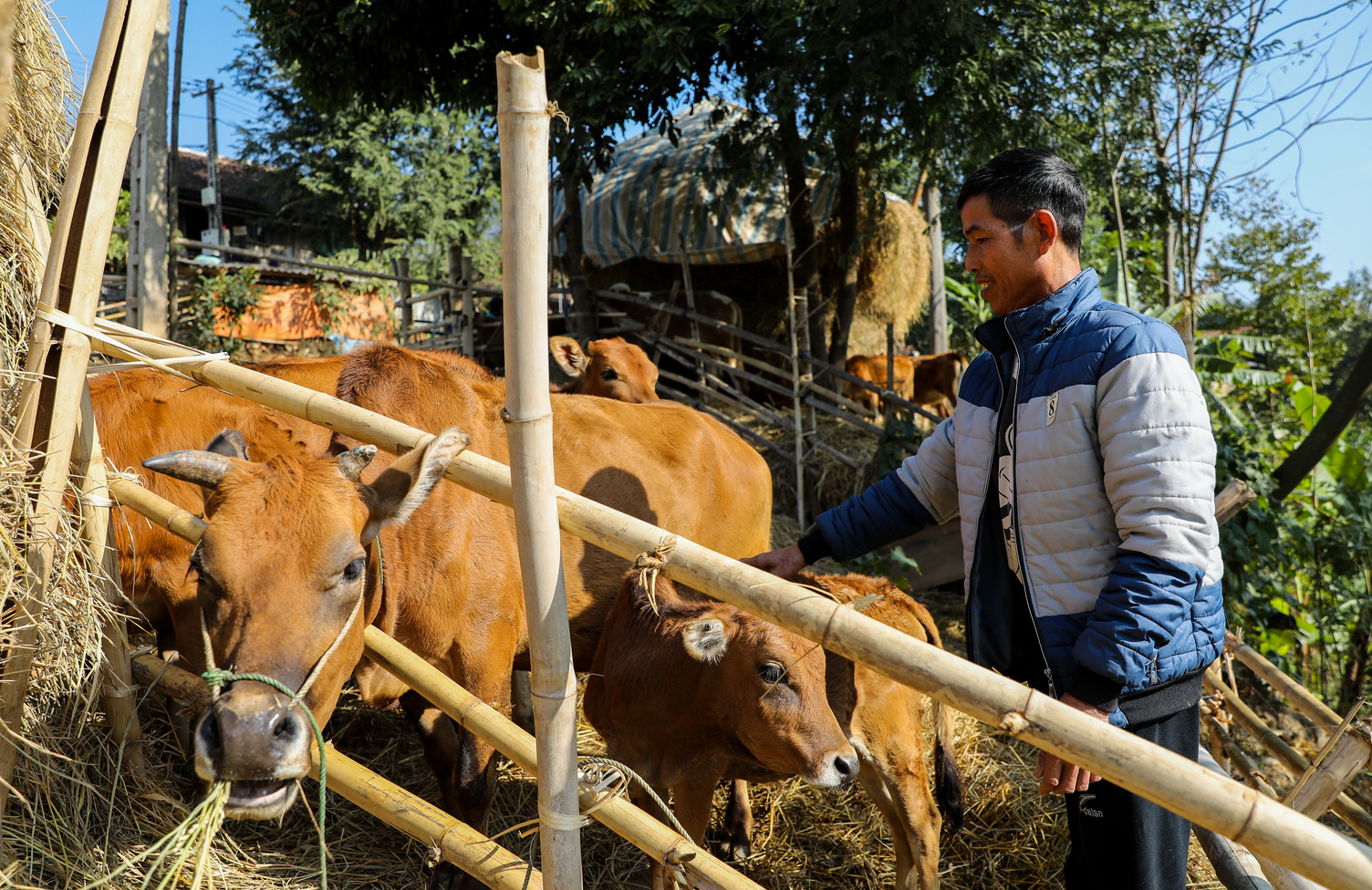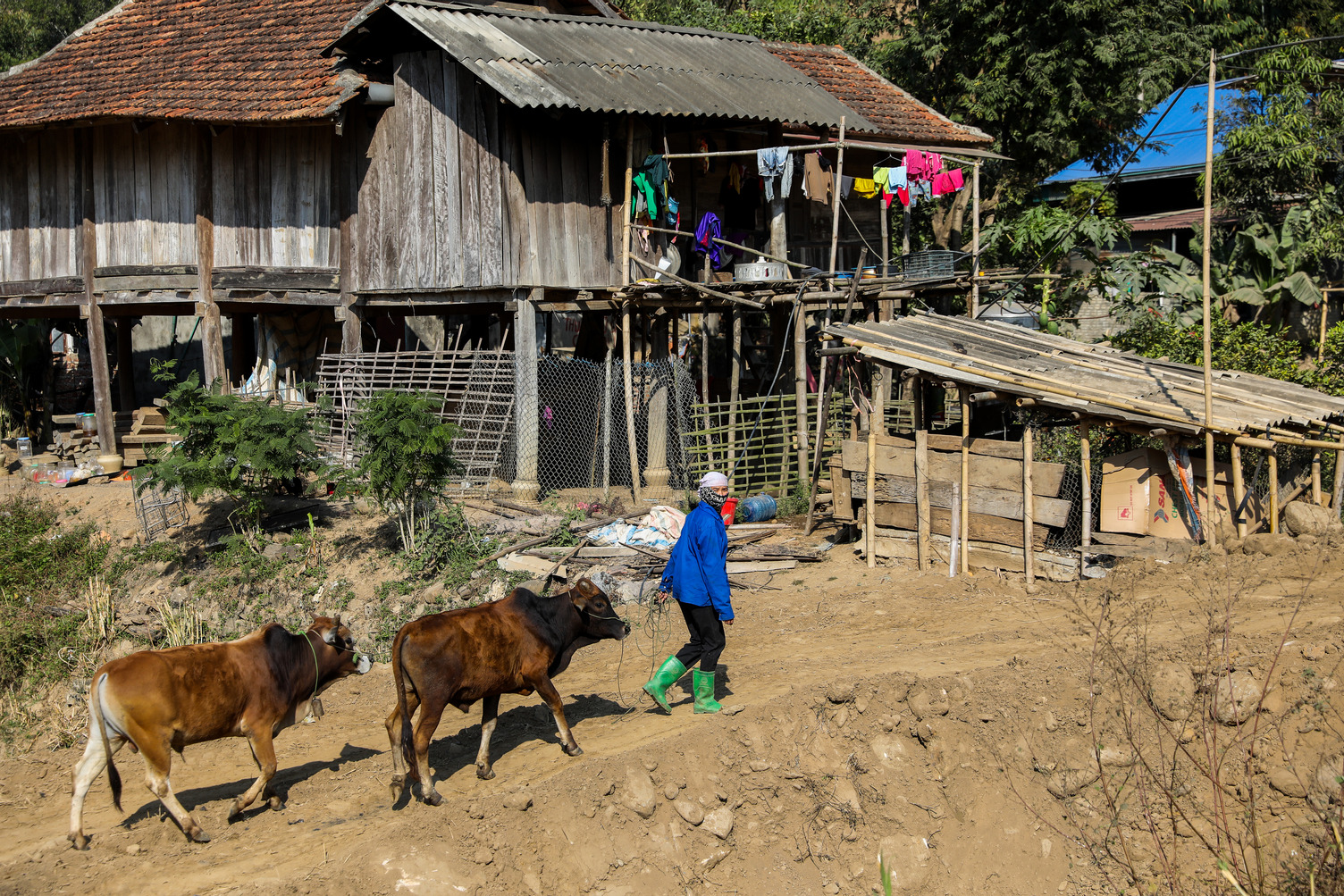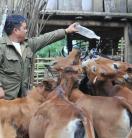Integrating Vietnamese smallholder farmers into commercial beef supply chains

A new ACIAR-funded project will investigate how Vietnam's smallholder livestock farmers can benefit from the country's rapidly growing commercial beef sector.
With 100 million people and a 35% upsurge in domestic demand for beef products over the last 5 years, Vietnam presents a significant opportunity for livestock farming communities to improve their livelihoods.
At the same time, Vietnamese consumers have also raised their expectations around hygiene, food safety and nutrition. Meeting these stricter standards will be critical for Vietnamese smallholder farmers to maximise economic return.
ACIAR Research Program Manager, Agribusiness, Mr David Shearer, said the commercial beef market is currently dominated by large, vertically integrated agribusinesses, leaving little windows for smallholders to participate.
‘This new initiative will provide insights to increase the chance for smallholders to benefit from the fast-growing beef sector of Vietnam, improving livelihoods and nutritional outcomes at the household level,’ said Mr Shearer.
The project design has a strong people focus, concentrating on building partnerships and business systems that facilitate smallholder communities’ participation in high-value commercial livestock chains in an equitable manner.
ACIAR Project Leader from the University of Tasmania, Dr Stephen Ives, said that very few current business models support smallholder communities to join high-value beef chains, leaving the farmers more isolated from commercial markets while suffering the increasing production costs.
The project will first bring commercial operators and smallholders together to identify each side’s needs, pains, trigger points and opportunities to work together along the beef chain.

The research team will investigate and test best practices and business models for smallholders and commercial stakeholders to work together in mutually beneficial and sustainable ways, helping improve farmers’ livelihoods and industry’s productivity.
‘We anticipate that by identifying best practice business and governance models for smallholders and commercial operators, and supporting the adoption of the models, livestock production would be an integrated system providing mutual benefit for all stakeholders,’ said Dr Ives.
This project will also draw from long-standing ACIAR investment in Vietnam’s beef cattle industry, including a team of researchers who have collaborated over the last decade to develop knowledge and pathways for farmers to benefit from the industry.
The researchers will work with the commercial sector as an integral partner to all project activities, a practice not common in research-for-development initiatives.
‘We expect that stereotypical norms often associated with industry and research institutions will be broken down so that an open and respectful dialogue can occur,’ said Dr Ives.
The project is working closely with livestock officers from the Vietnamese Government to assist researchers in understanding the Government’s long-term vision for livestock production, and to play a key role in disseminating knowledge and information developed by the project team.
‘We expect that this project will help develop and enhance relationships and capacity of all stakeholders to engage in commercial agrifood chains,’ said Dr Ives.
While the project principally aims to benefit Vietnamese smallholder beef farmers, it has the potential to gain market insights where the Australian beef sector has a comparative advantage in supply. Currently, Australia is the second-largest beef exporter to Vietnam.
‘Through this project, Vietnamese and Australian researchers and industry can collaborate to share insights and understanding for better value chain integration to deliver improved outcomes for Vietnamese consumers and rural livelihoods,’ said Mr David Shearer.
Learn more about this project via the ACIAR website.



